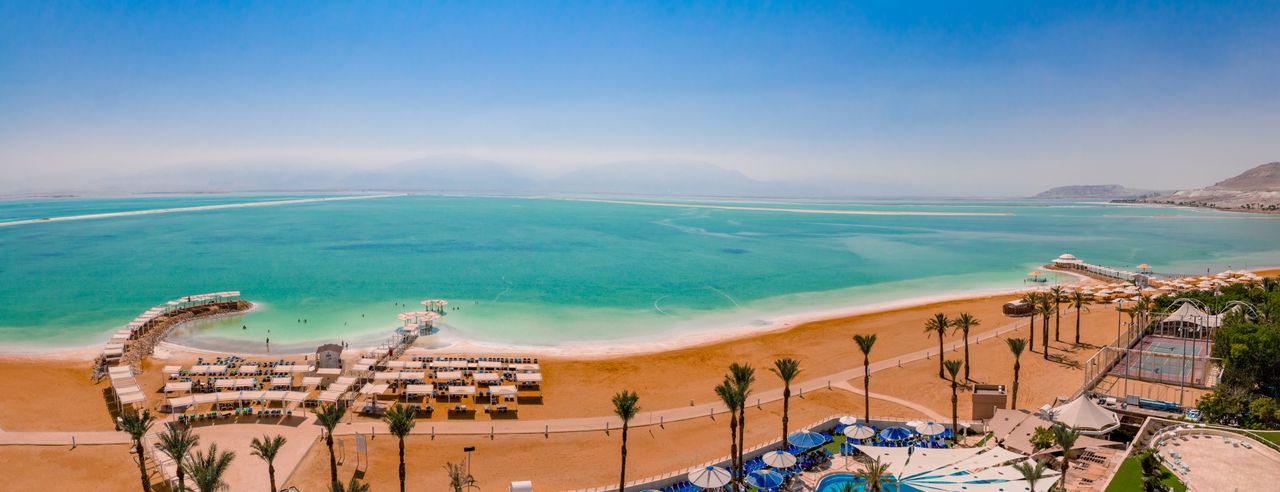
Study on Dead Sea climatotherapy for rheumatic diseases
Marco Harari et al.
April 2011
Climate treatment
Rheumatism / Joints / Arthritis / Arthrosis
The aim of the DMZ Medical Center study was to evaluate the effectiveness of Dead Sea climatotherapy on vitamin D production in Norwegian patients with various rheumatic diseases and to investigate possible correlations between elevated serum vitamin D levels, musculoskeletal symptoms and disease severity.
Sixty Norwegian patients who came to the Dead Sea for 21 days of medical rehabilitation were divided into three groups according to diagnosis: chronic pain syndromes, i.e. back pain or fibromyalgia (group 1); rheumatoid arthritis (group 2); and osteoarthritis (group 3). Serum levels of 25-hydroxyvitamin D (25-OH-D) were determined on arrival and before departure. The treatment protocol included daily sun exposure (climatotherapy), baths in the Dead Sea and mineral spring water (balneotherapy), mud treatments and fitness classes.
Serum levels of 25-OH-D increased significantly. After adjustment for initial pain levels (assessed using a visual analog scale) and disease severity, there was a direct correlation between increased serum 25-OH-D levels and pain relief as well as a reduction in disease activity.
Dead Sea climatotherapy leads to significant changes in vitamin D levels. Elevated serum 25-OH-D levels are associated with a reduction in musculoskeletal pain and disease severity.
The most important information on the study at a glance
- Indications
- Rheumatic diseases
- Institution
- DMZ Medical Center, Lot Spa Hotel, Dead Sea, Israel
- Title
- Study on Dead Sea climatotherapy for rheumatic diseases
- Brief description
- The study shows that climatotherapy at the Dead Sea significantly increases vitamin D and relieves pain in rheumatic diseases.
- Original title
- Increased vitamin D serum levels correlate with clinical improvement of rheumatic diseases after Dead Sea climatotherapy
- Link to the study
- https://pubmed.ncbi.nlm.nih.gov/21598808/
Suitable trips for this study topic
You might also be interested in
Climate treatment
Respiratory system / Asthma
C. Karagiannidis et al.
April 2006
The study shows that high-altitude climatotherapy reduces inflammation of the airways and has a positive effect on the immune profile.
Climate treatment
Eyes / Ears / Teeth
Ronit Yagev et al.
February 2005
The study shows: climatotherapy at the Dead Sea leads to significant improvements in the symptoms of chronic uveitis.
Climate treatment
Matteo Gelardi et al.
August 2013
The study shows: Aerosal halotherapy reduces tonsil enlargement and hearing loss in adenotonsillar hypertrophy.